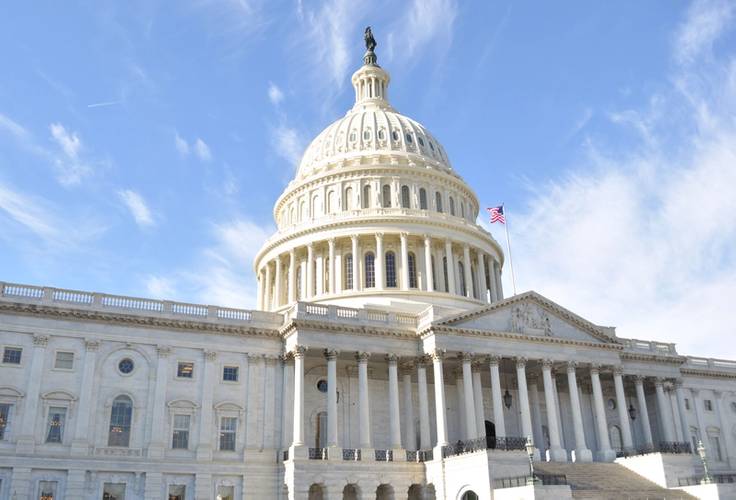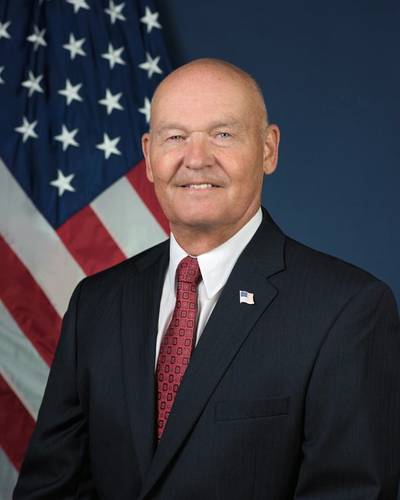On the Hill: Advocacy for Domestic Maritime
Bipartisan Congressional Leaders Highlight Importance of Jones Act, Employing 650,000 Americans incl. Veterans, for National & Economic Security.
Following the signing of an Executive Order by President Donald J. Trump to create an easier pathway for veterans to transition into maritime careers in the U.S. Merchant Marine, congressional and maritime leaders convened for two hearings exploring the state of the domestic maritime industry and the role of the Jones Act. These hearings coincided with the release of new economic data from PricewaterhouseCoopers (PwC) which quantified that the Jones Act creates 650,000 jobs nationwide with an economic impact of more than $150 billion annually.
On Wednesday, the House Transportation and Infrastructure Subcommittee on Coast Guard and Maritime Transportation gathered for a hearing titled “U.S. Maritime and Shipbuilding Industries: Strategies to Improve Regulation, Economic Opportunities, and Competitiveness” while the Senate Committee on Commerce, Science, and Transportation simultaneously held a hearing titled “The State of the American Maritime Industry.”
Chair of the House Committee on Transportation and Infrastructure Peter DeFazio (D-OR) opened Wednesday’s hearing by addressing the recent Executive Order signed by President Trump saying, “I applaud the President for signing an executive order on Monday to support the transition of active duty service members and military veterans to careers in the U.S. Merchant Marine. That was the right thing to do. It would be a cruel irony, however, if the next action taken by this administration were to waive the Jones Act and simultaneously eliminate future job opportunities for those very same veterans and separating active duty service members. I feel very strongly about the Jones Act.”
Chair of the Subcommittee on Coast Guard and Maritime Transportation Sean Patrick Maloney (D-NY) began by recognizing the importance of the Jones Act, stating, “We cannot become complacent in our defense of the Jones Act, which remains a critical component of U.S. maritime strategy.” He also highlighted the importance of the Jones Act for providing the vessels and manpower in times of need, stating, “The U.S. Merchant Marine acts as a naval auxiliary to deliver troops and war material to military operations abroad. Throughout our history, the Army has relied on U.S. flagged commercial vessels to carry weapons and supplies and ferry troops to the battlefield. During Operations Enduring Freedom and Iraqi Freedom, U.S. flagged commercial vessels transported 90 percent of sustainment cargoes moved to Afghanistan and Iraq.”
Also expressing support for the Jones Act was Rep. Chris Pappas (D-NH), asking, “What would the maritime industry look like without the Jones Act?” to which Rear Admiral Mark H. Buzby, USN Ret., Administrator of MARAD responded, “We would not have a maritime industry without the Jones Act. Quite plain and simple.” Rep. Pappas concluded by saying, “The Jones Act seems to be working. I’m a big supporter.”
The commercial industry’s “Military to Maritime” program, designed to connect military veterans with the jobs, training and resources they need in order to begin a career in the domestic maritime industry, continues to perform a valuable role in recruiting the 650,000 strong American workforce for today’s domestic Jones Act fleet.
During the Senate Committee on Commerce, Science, and Transportation hearing, Chairman Roger F. Wicker (R-MS) noted the 41,000 Jones Act-qualified vessels operating in the domestic trades, adding that, “properly enforcing the Jones Act is important for economic and national security.”
Ranking Member Maria Cantwell (D-WA) addressed the importance of a strong American domestic fleet to maintain a robust shipbuilding industry and industrial base, and urged the committee that, “in addition to the strong support of the Jones Act, this committee should consider supporting investments in vessel recapitalization programs.”
Building on the significance of the Executive Order on Supporting the Transition of Active Duty Service Members and Military Veterans into the Merchant Marine, Sen. Brian Schatz (D-HI) highlighted the national security aspect of the Jones Act, noting the importance of “having the merchant mariners ready in case they are in need.”
Sen. Deb Fischer (R-NE) likewise acknowledged the significance of the Jones Act for military readiness of the country, adding that the Jones Act is “vital to the security and safety of the United States.”
Sen. Tammy Baldwin (D-WI) emphasized that the American maritime industry represents “a critical national security asset for the United States.” Sen. Baldwin went on to discuss a bill she introduced, the Made in America Shipbuilding Act, and revealed she plans on reintroducing it “very soon.”
Reminding witnesses that a number of committee members sent a letter to the White House emphasizing the importance of the Jones Act, Sen. Dan Sullivan (R-AK) highlighted the importance of the Jones Act for national security and noted that Korea, China, and Japan all have laws that are like the “Jones Act on steroids” which are in place to protect domestic economies, jobs, and national security.














